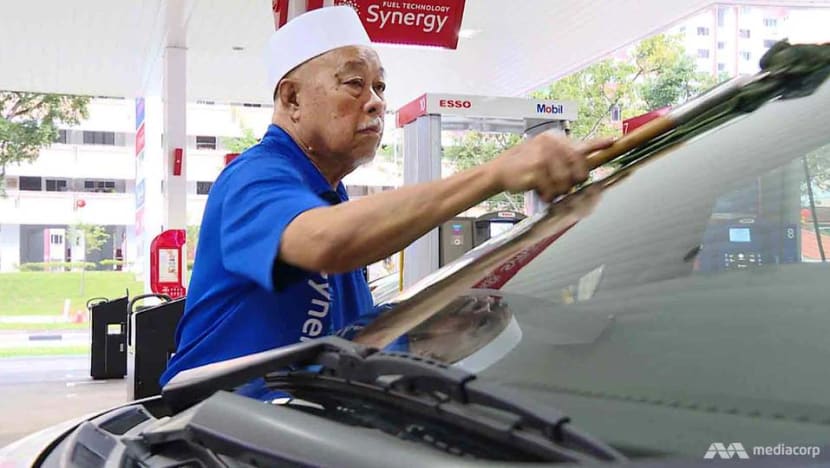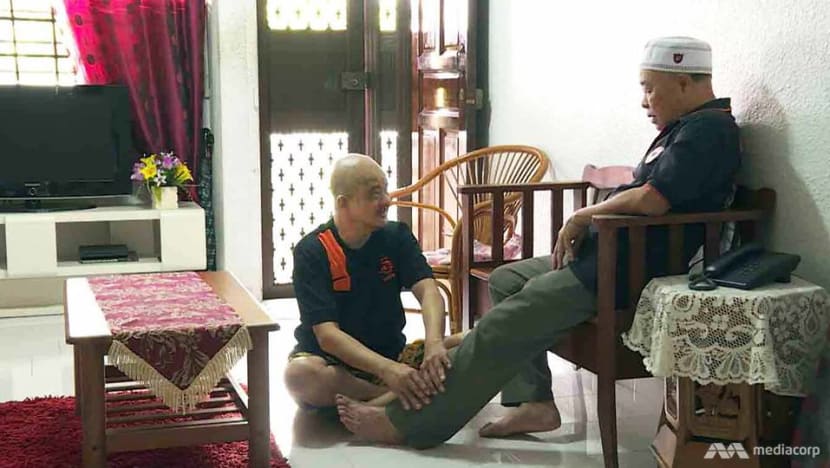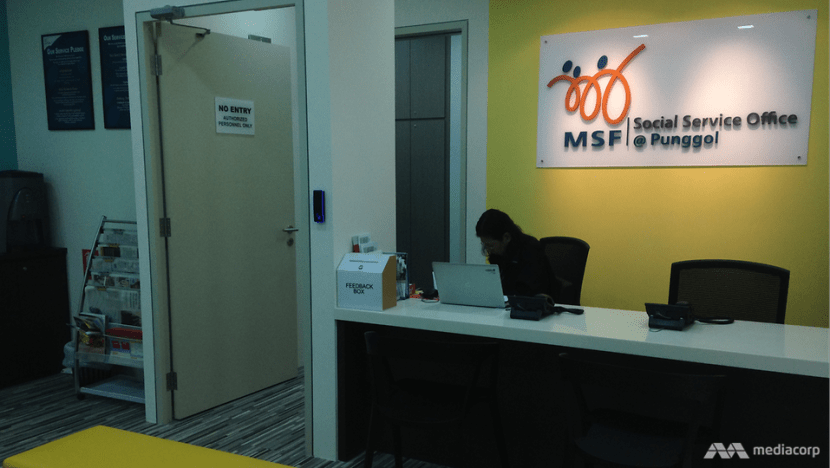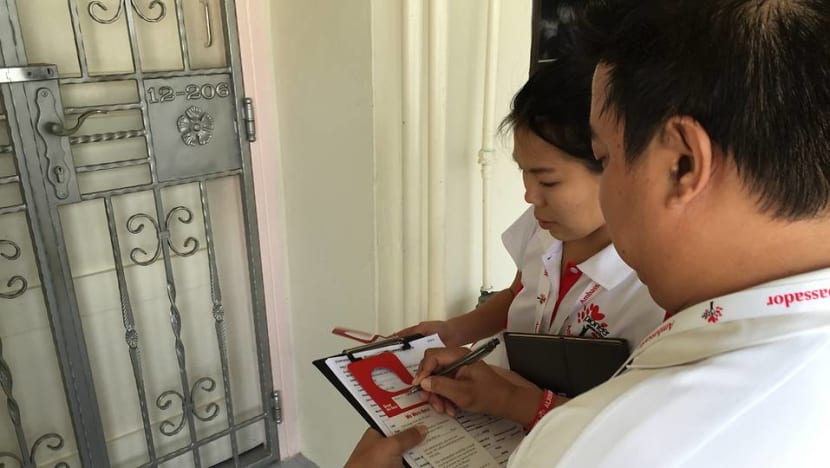commentary Singapore
Commentary: Tackle inequality by moving from emotion to action
Reactions to the story of 77-year-old petrol pump attendant Mohamed Yasin suggest we have some way to go in tackling inequality, says Channel NewsAsia Digital News’ Lin Suling.

77-year-old Mohamed Yasin at work.
SINGAPORE: Over the last week, the story of 77-year-old petrol pump attendant Mohamed Yasin has captured the hearts of Channel NewsAsia's readers.
His story is gut-wrenching. He works long hours, but needs the income to support his wife and mentally disabled son.
Netizens have called for the Government and unions to intervene, seeing that he earns well under S$2,000 a month including Workfare benefits.
Others have drawn lessons about being nicer to those in service jobs that may not pay well, particularly the working elderly. A few suggested tipping him.
In recent months, with the issue of inequality having already been in focus during Budget 2018 debates, it is reassuring that stories like his find traction among Singaporeans.
But while we are bothered by news about those from low-income households who struggle to support their families, what more can we do, apart from calling on authorities to step in, and voicing our sympathies online?
Is there space for constructive ideas and suggestions, which may or may not need to involve the authorities?
ADDRESSING INEQUALITY
Singapore’s income inequality has been falling since 2007 and is near its lowest in a decade. After including Government transfers and taxes, the Gini coefficient for 2017 was 0.401, according to Singstat.
But the slower pace of income growth for the bottom 50 per cent households hints at a widening gap between the rich and the poor, said Institute of Policy Studies research associate Leonard Lim.

“It is a point of concern because … the income gap is widening between certain groups – the bottom half versus the 50th to 90th percentile – and it shows the increasing importance of the role of Government transfers to mitigate this,” he added.
Addressing inequality must start by acknowledging that low-income households, particularly those with a sole breadwinner, suffer from intrinsic disadvantages. Indeed, this may be the case for Mr Yasin.
“BANDWIDTH-STRAPPED”
Harvard professors Sendhil Mullainathan and Eldar Shafir use the term bandwidth tax to describe the additional cognitive challenges facing poorer households.
Managing scarce finances uses up much energy and emotion, leaving little behind to take actions that can improve their socio-economic situations.
Some Government schemes in Singapore aimed at relieving those in the low-income brackets already recognise this.
For example, the Workfare Income Supplement that Mr Yasin receives is an auto-inclusion scheme, based on one’s credited employer CPF contribution.
But there is also room for improvement. For example, social assistance schemes, such as those under ComCare, require applicants to head to the Social Service Office or Family Service Centre.
Most also require a long list of documents – including applicants’ latest payslip, service and conservancy charges, and power supply bills for instance.
The “compliance cost” for these schemes, requiring bandwidth-strapped low-income beneficiaries to reach out to agencies themselves is one area that can be addressed.

WE CAN ALL DO SOMETHING
It is also useful that the Government recognises the importance of targeted outreach for households with multiple needs – particularly those with seniors.
The repositioning of the Pioneer Generation Office as the Silver Generation Office is one such sign.
Under this programme, ambassadors proactively knock on doors to match households with relevant social assistance and health schemes.
It’s not a silver bullet but those of us concerned with the plight of someone like Mr Yasin could volunteer as ambassadors – and help poorer households access needed assistance, including aiding with necessary paperwork and administration.
It will require volunteers to build familiarity with schemes - meaning to say we’ll need to be able to tell ComCare apart from Medifund for instance - and dedicate time to do outreach.
If we think inequality is an issue that must be tackled – then our words must be matched with deeds. Volunteering a helping hand can be formalised, but many times, might involve just a knock on a neighbour’s door.

SOCIAL INCLUSION
In the book The Rich and the Rest of us, authors Tavis Smiley and Cornel West highlight that denial over the need to tackle inequality in the US, and its resulting paralysis forestalling constructive action, is a cautionary tale about moral failure.
Sorely lacking is a culture of empathy, they argue. Americans need to take personal responsibility in doing their part to combat income inequality.
There are parallels to be drawn in Singapore.
It is heartening to see Channel NewsAsia’s documentary Don’t Make Us Invisible, which feature unsung heroes like Mr Yasin, shine the spotlight on the uphill challenges those in the low-income bracket face.
Mr Yasin’s can-do attitude makes the story an uplifting one.
But sympathy should not be the only sentiment that viewers take away. It should lead to some inspiration, to more deeply understand his challenges, and generate action from each of us as individuals.
What does it mean for Singapore’s sense of social inclusion?
Where Singapore has made great strides over the last decade in strengthening the social safety net to aid those in need, it is imperative that we continue to examine how to finesse these schemes.
Just as importantly, it is time we also look more deeply into how we can help low-income families, and see how each of us can take concrete action.
Lin Suling is executive editor at Channel NewsAsia Digital News where she oversees the Commentary section.














